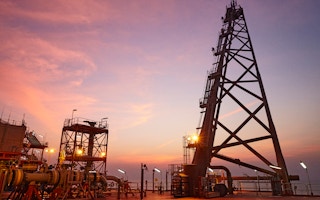Oil giant BP has announced it will develop renewable energy capacity to 50 gigawatts—20 times its 2019 capacity—and increase investment in low-carbon energy by 10-fold to US$5 billion a year by 2030.
To continue reading, subscribe to Eco‑Business.
There's something for everyone. We offer a range of subscription plans.
- Access our stories and receive our Insights Weekly newsletter with the free EB Member plan.
- Unlock unlimited access to our content and archive with EB Circle.
- Publish your content with EB Premium.
Releasing details of its plans to embark on a low-carbon path after pledging in February to achieve net zero by 2050, the company said on Tuesday (4 August) it would grow its hydrogen business and increase electric vehicle charging points from 7,500 to over 70,000 by 2030. It will also slash oil and gas production.
Analysts and activists welcomed the low-carbon plans and said the far-reaching effects of the Covid-19 pandemic and plunge in oil demand were contributing factors.
John Sauven, executive director of environmental advocacy group Greenpeace UK, noted that BP’s announcement was made more than a month earlier than expected. Calling it a “credible and encouraging start”, Sauven said: “The good news is that BP will actually produce less oil and gas, and they’re making that change this decade. That is vital. Up to this point, many companies, from fossil fuel majors to the aviation industry have focused on offsetting – which all too often is not even damage limitation.”
Sauven said BP is, however, still backing hydrogen generated from methane, a fossil fuel, instead of the greener option of making it from water and renewable power.
He called for BP to scrap its investment in biofuels, due to their potential to boost palm oil use and deforestation, and to dispose of its 20 per cent stake in Russian national oil company Rosneft.
Peter Kiernan, lead energy analyst at the Economist Intelligence Unit, said BP’s 2030 targets, which include cutting its oil and gas output by 40 per cent, are significant.
“Other oil and gas companies have also recently made commitments to varying degrees to cut emissions, but this announcement by BP is a significant step in terms of committing the business to a lower carbon energy future. It is also unlikely to be the last,” Kiernan said.
“If anything the impact of the coronavirus pandemic will sharpen the focus of operators on the future of fossil fuel demand, while likely enhancing the attractiveness of investing in lower carbon sources of energy over the longer term.”
BP chief executive Bernard Looney said the next decade is critical in the fight against climate change, and that the company plans to be a very different business by then, delivering integrated energy solutions.
By 2030, it plans to lower emissions from its operations by 30 to 35 per cent, and those associated with carbon in upstream oil and gas production by 35 to 40 per cent.
BP is already building capabilities in low-carbon ventures, such as through its electric vehicle partnership with ride-hailing app DiDi in China, Looney said. Its Lightsourcebp solar development joint venture is now in 13 countries.
Environmental activists have, for years, pushed major fossil fuel companies to stop searching for new oil and gas and keep existing reserves in the ground. Clean energy movement 350.org has noted that BP is one of the 25 major fossil fuel producers responsible for more than half of the world’s industrial greenhouse gas emissions.
On BP’s latest announcement, Greenpeace’s Sauven said: “For environmental campaigners, it’s simultaneously as if Christmas has come early, while at the same time–decades too late.”










